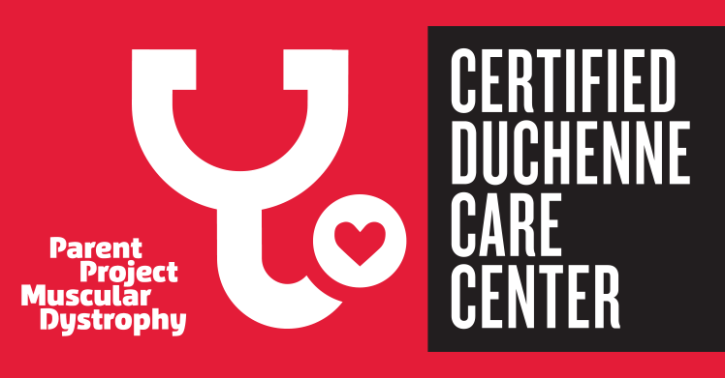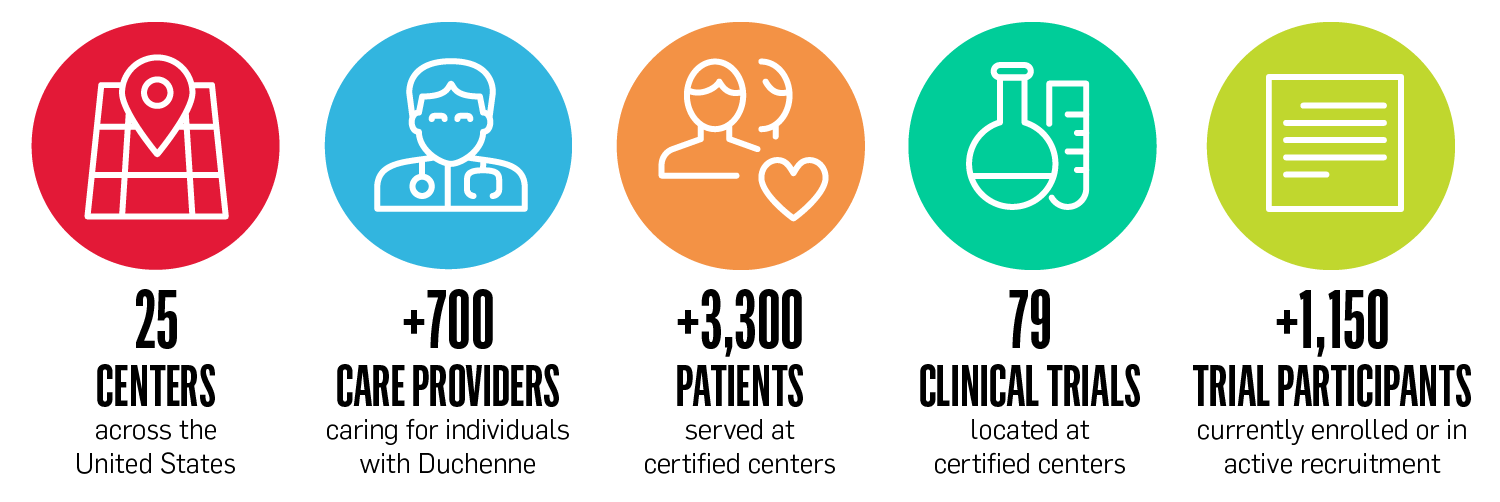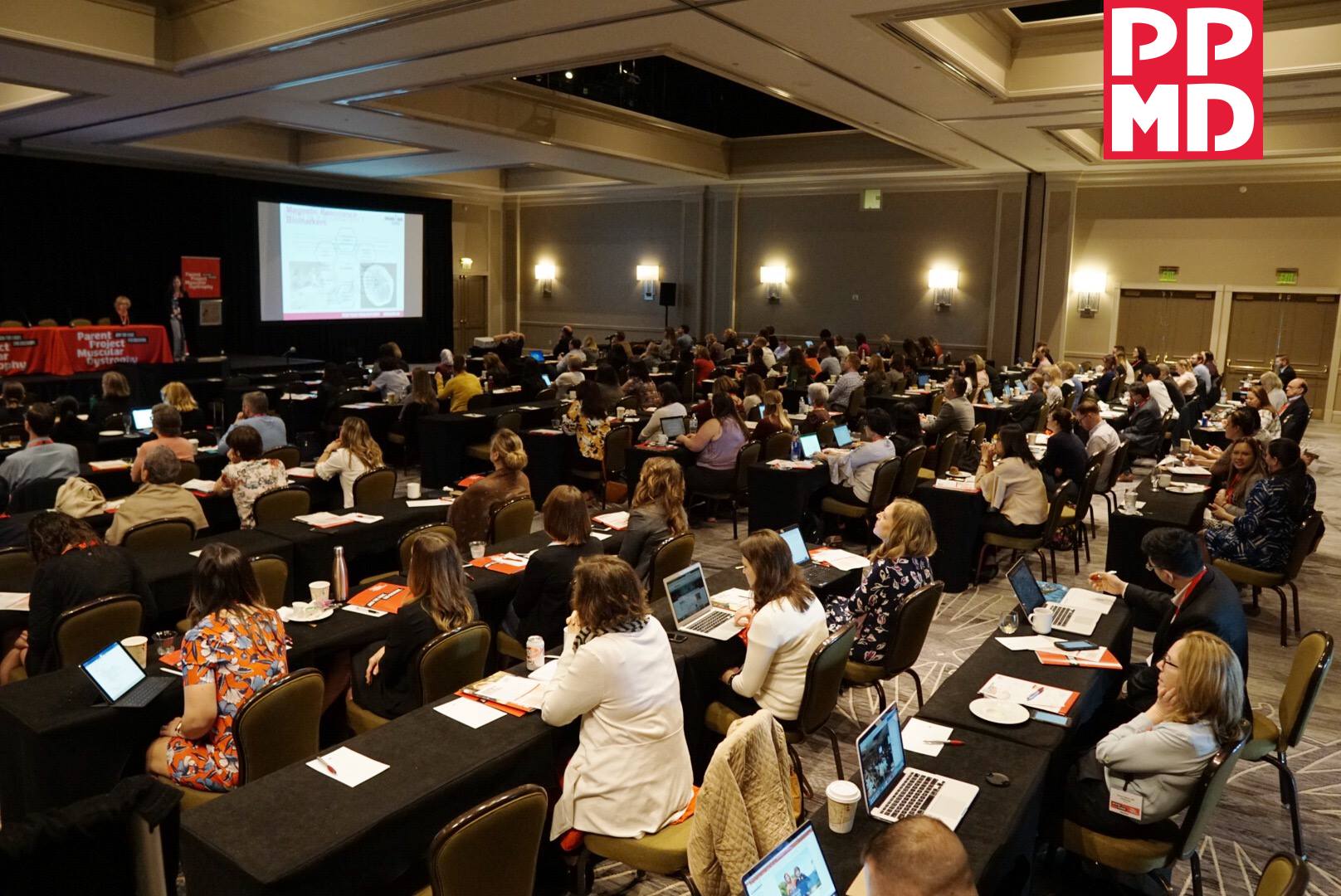
For 25 years, care has been at the heart of everything PPMD does. We strive to ensure that people living with Duchenne are living longer, stronger lives, by helping you access expert healthcare providers, a comprehensive team of sub-specialists, and cutting edge treatments. One way we do this is by regularly visiting and assessing clinics in the U.S. to ensure they are complying with the standards of care and services that have been established in the Duchenne Care Guidelines through PPMD’s Certified Duchenne Care Center Program. All Certified Duchenne Care Centers (CDCCs) have met the requirements for, and agree to provide, optimal standardized care and services.
But changes happen and transparency is important. PPMD wants to be sure that you are aware of any changes that may be happening with the care and services that you receive at our CDCCs. Twice a year, the Certification Committee checks in with the CDCCs to see if there changes that they would like to share with you. Below is a summary of those changes.

The CDCC network has now grown to 25 incredible centers across the United States, includes more than 700 medical providers and serves more than 3,300 patients and their families. These 25 centers are sites to 79 clinical trials, enrolling more than 1,150 patients, who are either currently enrolled or in active recruitment (these are averages based the number of subjects and the number of sites for each trial).
Evaluating Your Care and Services
Between January 2018 and January 2019, 363 Clinical Experiences Surveys were completed across 23 Certified Duchenne Care Centers. Patient ages across the CDCCs ranged from 1 – 60 years old, with the greatest percentage being between 5 – 18 years old (80.21%). In the past 18 months, parents and patients report:
- 241 are taking corticosteroids (prednisone: 86; deflazacort 139).
- 180 are taking daily steroids and 51 are taking weekend doses.
- 80.2% received the influenza vaccine.
- 245/342 received a copy of their last note or have access to the note in EHR
- 94%received a pulmonary function test
- 92% had cardiac imaging (echocardiogram 41%, cMRI 14%)
- 90% have had genetic testing
- 69% reported having their vitamin D levels checked (25 OH vitamin D)
- Nearly all patients reported having seen a neuromuscular specialist, cardiology, pulmonary, physical therapy. More than 50% had seen social work, nutrition and occupational therapy
- Clinical trials discussions were reported by 60% of patients/parents
- 75% of patients were encouraged to update their information in The Duchenne Registry
- 25% of patients reported being involved currently in a clinical trial or an extension phase of a clinical trial
- 97% of participants reported being satisfied (24%) or very satisfied (73%) with their care
Bi-Annual Report of Each Center
| Center | Certified | Director(s) | Care Coordination | Number of Duchenne/Becker Patients in Past 12 mo | In good CDCC Standing | Changes in Faculty, Staff and Programing |
|---|---|---|---|---|---|---|
| American Family Children’s Hospital | September 5, 2018 | Jennifer Kwon (Neurology) | Cory Sieburg, APRN | 31 | Yes | New Neurologist/center director, Jennifer Kwon |
| Ann and Robert H. Lurie Children’s Hospital | December 1, 2016 | Nancy Kuntz (Neurology) | Kristen Alianello, RN | 162 | Yes | No changes reported |
| Benioff Children’s Hospital (UCSF) | November 1, 2017 | Jonathan Strober (Neurology) | Audrey Glancy Malaer, RN | 50 | Yes | Dietician Makiko Omori, RD |
| Children’s Hospital Colorado | June 1, 2014 | Sue Apkon (PM&R), Julie Parsons (Neurology) | Alison Ballard, APRN | 224 | Yes | New: co-director, Sue Apkon (PM&R), David Brumbaugh (GI), Richard Roberts (endocrine) |
| Children’s Hospital of the King’s Daughters | January 29, 2019 | Crystal Proud (Neurology) | Erika Paradiso, RN | 80 | Yes | New certification |
| Children’s Hospital Wisconsin | November 6, 2018 | Matthew Harmelink (Neurology) | Gretchen Heckel, MSN, Nurse clinician neurology | 60 | Yes | New certification |
| Children’s Mercy Hospital | March 1, 2016 | Ann Modrcin (PM&R) | Alexis Lutz, APRN | 70 | Yes | No changes reported |
| Children’s National Hospital | November 1, 2018 | Diana Bharucha Goebel (Neurology) | Kathleen Smart | 58 | Yes | Sally Evans, PM&R, leaving April 1. |
| CHLA | March 1, 2016 | Leigh Ramos-Platt (Neurology) | Arlene Deseo, RN | 100 | Yes | New: Dr. Ryabets, (endocrinology); Abbu D’Angelo (genetic counselor); new program hiring men with DMD/BMD as Spanish translators |
| Cincinnati Children's Hosptial Medical Center | June 1, 2014 | Cuixia Tian (Neurology), Mary McMahon (PM&R) | Allison Egbert, Program Manager; Kristine Barnett and Ashley Jenk, RN Care Coordinators | 426 | Yes | Current Neurology providers: Drs. Cuixia Tian and Irina Rybalsky, DNP Wendy Chouteau; Current cardiology providers: Drs. Thomas Ryan, Chet Villa and Sam Wittekind |
| Duke Children’s NM Center | June 1, 2015 | Eddie Smith (Neurology) | Pam Green, RN | 153 | Yes | New: Robert Lark (Orthopedics); Azita Sadeghpour (Genetics counselor); Gary Maslow (Psychiatry) |
| Gillette Children’s Hospital | July 1, 2017 | Randall Richardson (Neurology) | Kristin Moran, RN and Michaela Geffre, RN | 121 | Yes | Addition of Dr. Carla Grossman, Neurology |
| Kennedy Krieger Institute | November 14, 2014 | Kathryn Wagner (Neurology) | Angie Lasseth, Coordinator; Michael Munchel, RN | 171 | Yes | No changes reported |
| Lucille Packard Foundation for Children’s Health | March 1, 2015 | John Day (Neurology) | Jessica Guzman, RN | 133 | Yes | No changes reported |
| Massachusetts General | December 1, 2014 | David Dredge (Neurology) | Catie Becker, APRN; New Coordinator: Jenny Sar, Patient Services Coordinator | 38 | Yes | No changes reported |
| Nationwide Children’s Hospital | April 1, 2014 | Kevin Flanigan (neurology) | Cassandra Karingada, APRN | 346 | Yes; recertification 4/1/2019 | New Care Coordinator Cassandra Karingada, APRN |
| Nemours AI DuPont | August 1, 2017 | Mena Scavina (Neurology) | Jennifer Hultberg, RN | 90 | Yes | No changes reported |
| Seattle Children’s | September 1, 2014 | Fawn Leigh, neurology now co-director with Molly Fuentes, PM&R | Kiko Vanzandt, RN | 120 | Yes | New: co-directors Fawn Leigh (neurology), Molly Fuentes (PM&R). Neurology NP: Ashley Thibodeau, APRN |
| UC Davis | January 1, 2017 | Craig McDonald (PM&R), Nanette Joyce (PM&R) | Erica Goude and Mandy Walker, RN | 327 | Yes | A number of new providers; please consult the website |
| UCLA | September 1, 2016 | Perry Sheih (Neurology), Stan Nelson (Genetics), Nancy Halnon (Cardiology) | Jenna Gewirtz, APRN | 216 | Yes | No changes reported |
| University of Iowa | February 1, 2015 | Kathy Matthews (Neurology) | Christina Trout, APRN | 115 | Yes | Seth Pearlman is leaving end of April – Dr. Mathews will absorb his patients; Tim Starner and Princy Ghera (pulmonary); Michelle Staron (PA) and Vernant Exil (cardiology) |
| University of Rochester | February 11, 2019 | Emma Ciafaloni (Neurology) | Deb Guntrum, APRN | 48 | Yes | New certification |
| University of Utah/Primary Children’s Hospital | April 26, 2019 | Russell Butterfield (Neurology) | Meagan Bernatz, APRN | 92 | Yes | New certification |
| University of Virginia | November 28, 2018 | Rebecca Scharf (Developmental Pediatrics) | Sarah Pickell, MSN, RN, CNL | 45 | Yes | New certification |
| Yale New Haven Children’s Hospital | December 1, 2016 | Cristian Ionita (Neurology) | Louise Lanouette, RN, CDE | 35 | Yes | Addition of Child Psychologist (Paige Lembeck) to the NM team |
A full list of providers at each of the CDCCs can be found here.
2018/2019 CDCC Happenings

The PPMD Healthcare Professionals Summit was held January 23-25, 2019. The purpose of the meeting was to provide the opportunity to interact and to build collaborations across CDCCs; essentially to develop a framework, build on prior accomplishments (MD CARE Act, PDUFA V, 21st Century Cures Act, Benefit/Risk Framework, ICD-10 code), and to work together within this infrastructure to provide access to comprehensive care and approved therapies.
Physicians, sub-specialists, nurses, and clinical research coordinators from over 40 academic institutions – including 23 CDCCs, 4 international providers, and 14 additional US institutions providing pediatric and adult Duchenne care – attended this two-day Summit. In addition, we are joined by 12 of our industry partners and legislative representatives. A full review of the Summit can be found here.
While the updated Care Considerations encouraged new guidelines for care, there was not enough space in the journal to share all of the information that the subspecialty authors thought was important. For that reason, several of the subspecialties published articles in Pediatrics. We are introducing these articles one at a time. Emergency Care and Respiratory Care have been shared; the rest will be shared throughout the year.
The Monitoring Process
The CDCC is monitored by the CDCC Certification Committee – a steering committee of 19 individuals who represent several areas of neuromuscular subspecialty care, parents, industry and PPMD –review each application and site visit summary, and make suggestions/recommendations regarding certification. If center issues arise, this committee gathers to discuss the issue and potential solutions, and to discuss these solutions with the center. It is then the responsibility of the committee to follow up on the solution, to make sure that that recommendations are followed and that the issue is resolved.
In addition to the expertise offered by the expert clinicians at our CDCCs, PPMD is available to offer medical guidance when needed, referral and connection to appropriate medical personal and genetic counseling to patients, parents and providers. We are available when you need us and will do our very best to make sure that you get the information and assistance that you need.
This year, after 5 years of certification, our first CDCCs will begin the process of re-certification. We will also embark on a pilot process to certify Adult CDCCs, offering care and services especially appropriate to our adult community. In addition, as there is growing global interest in certification, we will continue to develop a process and program for the Global CDCC program.
PPMD will continue to work to provide the care and services that our Duchenne community will need for decades to come.
 Your Input is Vital
Your Input is Vital
The Clinical Experiences surveys that we ask you to complete each year, let the CDCC Certification Committee know what elements of care and what services you are receiving, and what you like and what you do not like about the care and services at your center. Your input is vital to the continued improvement of this program. We put all of your responses together each year and give those back to the centers, who use these responses to improve the care and services at each of their centers.
In addition, the Certification Committee takes a deeper dive into any issues or concerns that are raised, and the centers use your feedback to continuously improve the care and services that you are receiving at your center. Your completing the Clinical Experiences Survey annually is vital to the continuous improvement of the centers and our program.
Reminders for Families in Emergency Situations
If you are headed to the emergency room or the hospital, please remember:
- Take the PPMD emergency card with you (available in English or Spanish)
- Take a copy of the summary of your last neuromuscular visit with you or a brief one page summary of your/your child’s care
- Download, and keep handy, the PPMD mobile app
- Take any equipment that you use at home (cough assist, BiPAP, etc.) and medications that you take, with you
- Take a copy of your last ECG with you. (All people living with Duchenne have an abnormal baseline ECG. Providing the emergency team with your baseline heart rate and rhythm will help them to know if anything has changed.)
- Keep the information regarding oxygen use and appropriate anesthesia available for you and the emergency room staff
- Call your neuromuscular team and let them know what is happening
- Be sure that your neuromuscular team is talking with the emergency staff and are guiding your care
- If you/your child has developed an “emergency care plan,” take that as well
- If you need assistance, call the PPMD office at 800-714-5437. If the office is closed, Kathi Kinnett is available at kathi@parentprojectmd.org or 513-260-4004.



 by: Parent Project Muscular Dystrophy
by: Parent Project Muscular Dystrophy


